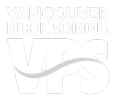Student health and safety
Partnering with you to support our students
It takes all of us — educators, parents, students and community members — working together to ensure the health and safety of our students.
Our request is simple: “See something, say something.” We encourage everyone to be vigilant and proactive in identifying potential concerns or issues that may impact the health and safety of our students. This collective responsibility and commitment helps create a safe and supportive learning environment.
Parent Resources
We are sharing resources to provide support and guidance on various aspects of student health and safety. From advice on physical well-being to strategies for fostering mental health, to addressing addiction, we are dedicated to equipping our community with the tools necessary to navigate the complexities of student well-being.
It is our commitment to continue updating these resources as new information is published on how best to support our students in each unique situation.
Mental Health
Build strong familial relationships. Having connections with others supports resilience in children and teenagers.
Have honest and frequent conversations about stress, mental health, and self-care. Pay attention to any changes in behavior and offer to listen when students want to talk about their feelings.
Parent Resources:
Mental Health and Crisis Response Resources
UW Forefront Suicide Prevention Workshop Recording
(available until March 1, 2024)
Internet Safety
Create a family media plan. Research shows that adolescents who spend more than 3 hours per day on social media face double the risk of experiencing symptoms of anxiety and depression. A family media plan includes engagement in both positive uses of social media and activities that don’t involve technology use.
Adjust online privacy settings to the most secure level. This helps protect the privacy of students.
Parent Resources:
Substance Use and Abuse
Talk to children and teens about the risks of vaping, smoking, drinking alcohol, and using other drugs. Make it difficult to access alcohol or substances and make it clear that you do not think it’s okay to use them.
Parent Resources:
OSPI Youth Behavioral Health Resource Fact Sheet
Safety at Home
Practice safe storage methods. Keep firearms and medications locked up and out of reach. Families can also talk to the caregivers of their children’s friends about safe storage methods.
Parent Resources:
Safety at School
We take all medical and safety concerns very seriously and we think it’s important to have conversations about safety with our students, staff, and community.
Please see our safety and incident response page to learn how we manage emergencies.
Grief and Loss
It’s important to talk with our children and have conversations about feelings of grief and loss during difficult times.
Parent Resources:
Talking to Children About Violence: Tips for Parents and Teachers – National Association of School Psychologists
How to Talk to Kids About Tragedies in the Media – Child Development Institute
Helping Students After a School Shooting – American School Counselor Association
Talking to Kids About Fear and Violence – Mental Health America
Parent Tips and OSPI Fact Sheets are courtesy of OSPI.
This information is provided as a courtesy and does not constitute or imply recommendation or endorsement by Vancouver Public Schools.
